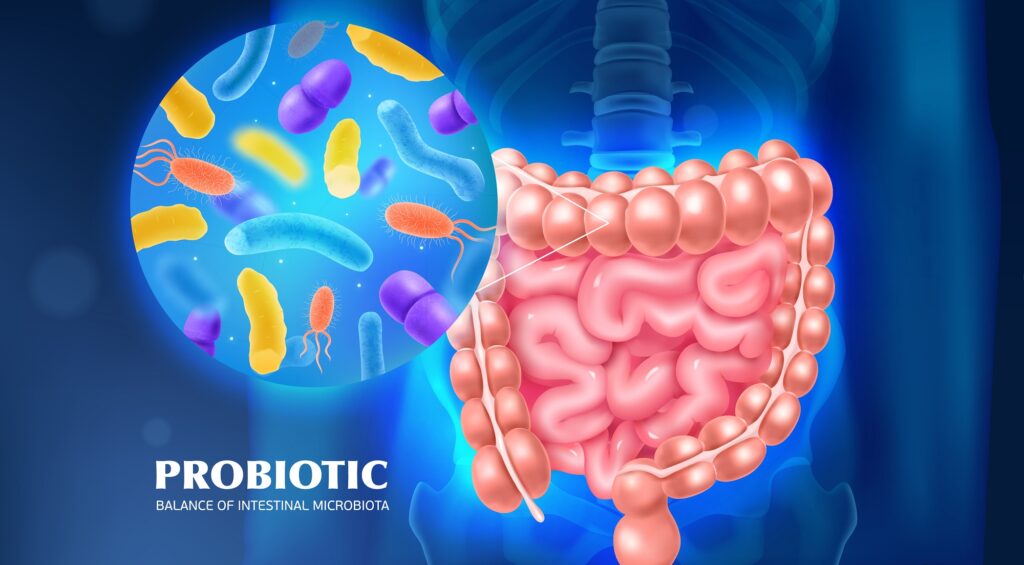In recent years, science has uncovered fascinating insights into the ways our gut bacteria, also known as the microbiome, influence various aspects of our health. One of the most compelling findings is the connection between gut bacteria and obesity. This link could hold the key to understanding weight gain and offer new pathways for addressing obesity, a condition that affects millions of people globally.
The Role of the Microbiome in Health
The human microbiome is a complex ecosystem of trillions of microorganisms, including bacteria, fungi, viruses, and other microbes, living in and on our bodies. The gut, specifically, is home to a vast majority of these microorganisms. The bacteria in our gut play an essential role in digesting food, regulating the immune system, and even influencing brain function. Disruptions in the gut microbiota, known as dysbiosis, have been linked to metabolic syndrome. But perhaps one of the most intriguing aspects of the microbiome is how it interacts with our metabolism, which directly impacts our weight.
Gut Bacteria and Metabolism: The Connection to Obesity

Our gut bacteria help break down food and extract nutrients, but they also have a direct impact on how efficiently we store fat. Research has shown that the composition of the microbiome can influence how our body processes calories, stores fat, and regulates hunger. In short, the microbiome plays a significant role in determining whether those extra calories are burned or stored as fat.
Studies have found that people with obesity often have a different gut microbiome composition compared to those with a healthy weight. In general, obese individuals tend to have a greater abundance of certain types of bacteria, such as Firmicutes, which are more efficient at extracting calories from food. This results in an increased calorie intake and a higher likelihood of storing those calories as fat. On the other hand, individuals with a more balanced microbiome, often with a higher diversity of bacterial species, tend to have better metabolic function and healthier body weight. Research suggests that modulating the gut microbiome through diet, probiotics, or other interventions may influence weight loss outcomes.
Gut Bacteria Influence on Appetite and Fat Storage
One of the key ways the microbiome affects weight is by influencing appetite and food cravings. Gut bacteria can produce hormones that regulate hunger, such as ghrelin and leptin. Ghrelin stimulates appetite, while leptin signals fullness to the brain. An imbalance in gut bacteria can disrupt this delicate hormonal balance, leading to increased hunger and overeating.
Furthermore, gut bacteria also play a role in fat storage. Certain bacteria can ferment dietary fibers to produce short-chain fatty acids (SCFAs), which have been shown to promote fat-burning and reduce fat storage. On the other hand, an imbalance in gut bacteria may lead to lower production of SCFAs, favoring fat accumulation instead. This imbalance has been associated with the development of fatty liver disease, as reduced SCFA levels can influence liver metabolism and fat deposition.
The Role of Inflammation in Obesity
Chronic low-grade inflammation is a hallmark of obesity, and the microbiome plays a crucial role in modulating this inflammatory response. Dysbiosis, or an imbalance in the gut microbiota, can lead to an overgrowth of harmful bacteria that produce endotoxins. These endotoxins can leak into the bloodstream, triggering inflammation throughout the body. Inflammation, in turn, interferes with the body’s ability to regulate fat metabolism and can promote insulin resistance, a condition that contributes to obesity and other metabolic diseases.
Interestingly, studies have shown that restoring a healthy microbiome balance through diet or probiotics can reduce inflammation and improve metabolic health, potentially aiding in weight loss and fat management.
Diet and Gut Health: A Path to a Healthy Weight

The good news is that we have some control over our microbiome, primarily through the foods we eat. A balanced diet rich in fiber, fruits, vegetables, and fermented foods can help foster a healthy gut microbiome. Foods like yogurt, kefir, kimchi, and sauerkraut contain beneficial probiotics that promote the growth of good bacteria, while prebiotic foods (such as garlic, onions, and whole grains) nourish these bacteria.
On the flip side, diets high in processed foods, sugars, and unhealthy fats can disrupt the balance of gut bacteria, favoring the growth of harmful bacteria that contribute to weight gain and inflammation. A diet focused on whole, nutrient-dense foods is key to maintaining a healthy microbiome and supporting long-term weight management.
Probiotics and Microbiome Interventions for Obesity
In addition to dietary changes, some researchers suggest that probiotic supplements may offer a promising approach to addressing obesity. Probiotics, which contain live beneficial bacteria, can help restore balance to the gut microbiome. Studies have shown that certain strains of probiotics may help with weight loss by reducing fat absorption, increasing fat burning, and regulating appetite-related hormones.
However, while the evidence is promising, more research is needed to identify which specific strains are most effective for weight management and how they interact with other factors like diet and lifestyle.
The Future of Obesity Treatment: A Microbiome-Based Approach
The emerging connection between gut bacteria and obesity opens up exciting possibilities for new treatment strategies. Instead of relying solely on traditional methods like calorie restriction and exercise, microbiome-based therapies could provide a more holistic approach to weight management. By targeting the gut microbiome, scientists hope to develop personalized treatments that address the root causes of obesity, rather than just the symptoms.
In the future, a combination of personalized diets, probiotics, and other microbiome-based interventions could offer a more effective and sustainable solution to obesity, transforming the way we approach weight loss and overall health.
Conclusion
The link between gut bacteria and obesity is a rapidly growing area of research, and it is becoming increasingly clear that our microbiome plays a significant role in our weight and metabolism. By understanding and nurturing our gut health, we may be able to unlock new strategies for managing obesity and promoting long-term wellness. Whether through dietary changes, probiotics, or other microbiome interventions, taking care of our gut could be the key to achieving and maintaining a healthy weight for life.